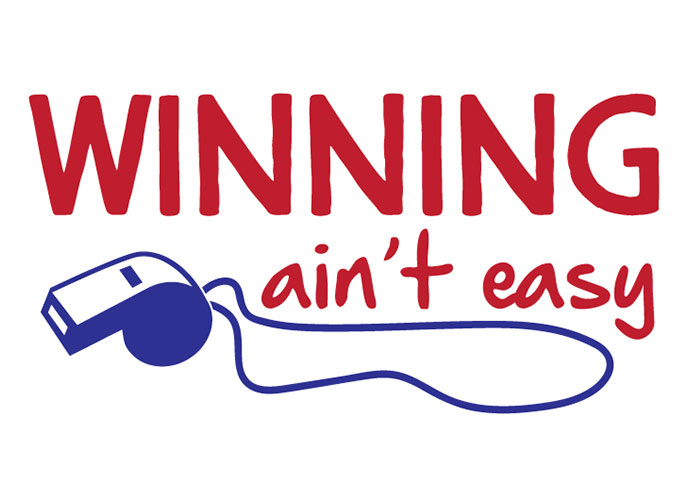I don’t know if I heard that phrase from someone else or not…..I actually think that it is one I came up with.
Simply put, ‘false praise’ is when you tell a kid ‘good job’ when they didn’t do a good job.
Usually, the intentions are good…..coaches and parents deal out false praise when they are trying to build a kid up. But, there are two problems with that in my opinion:
- I think it’s actually counter-productive to improvement. When you take away the sting or pain of failure, you take away some of the incentive to get better. It’s healthy to hurt or be upset when you fail at something.
- You can’t trick someone into believing in themselves. The key word in self-confidence is ‘self’….it has to come from within. If you want confidence in your ability to do something, you have to put the work in (and have some success) to earn that confidence. If you’ve put honest work into something, and are still not very good at it, perhaps you need to find something else to put work into….instead of constantly being told ‘good job!’
Now, I’m not advocating running around telling kids that they suck…..not at all!! I am advocating being honest with them. I always reminded my kids at the first of the year that I wasn’t a fan of ‘false praise’…..and that they didn’t need to look for it from me, or accept it from their parents. It’s ok to admit when we have had a bad game. When they walked out of the locker room and heard ‘good job’ from their parents, tell them thanks, but understand the reality of ‘maybe it wasn’t a good job and we actually do need to get better’.
I also reminded them that not handing out ‘false praise’ or saying ‘that’s ok’ didn’t mean that I didn’t care about them. One of the things I did before leaving the locker room after every game, was walk by and give each kid a ‘knuckle bump’ or hand slap (had one team that wanted to do the forearm bump). It wasn’t to tell the good job or to congratulate them, it was to physically let them know that I cared about them, no matter the outcome of the game.
Just be honest with your kids, let em know when they need to do better and let em know when they’ve done great. They’ll respect that and respond to it.
